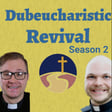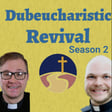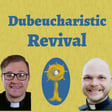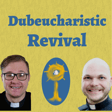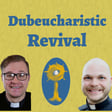
4: What Is A Secular Franciscan?
with Rosie Guerrero and Deacon Jim Wolf
Ms. G is a theology teacher at Columbus High School in Waterloo and an Associate of the Sisters of St. Francis in Dubuque.
Osfdbq.org
“My God and My All: The Life of Saint Francis of Assisi” by Elizabeth Goudge, 1959
Deacon Jim Wolf, OFS, is a deacon for the Archdiocese of Dubuque, assigned to Epiphany Parish in Mason City. Jim and his wife, Kris, have been married for 26 years and have two adult children.
St. Bonaventure Fraternity, Mason City, Iowa https://sites.google.com/view/ofsbonaventureia/home
Queen of Peace Region (IA, MN, ND, SD, NE) https://queenofpeaceregion.org/
Secular Franciscan Order https://www.secularfranciscansusa.org/
"St Francis of Assisi: A Biography" by Omer Englebert
1. The First Order – Friars Minor
• Founded by St. Francis in 1209 (approved by Pope Honorius III in 1223).
• These are the original Franciscan friars who live a life of poverty, prayer, and fraternity while serving the Church through preaching, missions, education, and service to the poor.
• The First Order is divided into three main branches today:
o Order of Friars Minor (OFM) – the largest branch.
o Order of Friars Minor Conventual (OFM Conv) – more urban-based, historically involved in intellectual and pastoral ministry.
o Order of Friars Minor Capuchin (OFM Cap) – a reform branch emphasizing simplicity and austerity.
2. The Second Order – Poor Clares
• Founded by St. Clare of Assisi in 1212, under the inspiration and guidance of St. Francis.
• A contemplative order of nuns, living in cloistered communities with a strong emphasis on prayer, silence, and poverty.
• Their life is dedicated to intercessory prayer and spiritual support for the Church and the world.
3. The Third Order – Secular Franciscans and Third Order Regular
• Established by St. Francis for laypeople and secular clergy who wished to live the Franciscan spirit without withdrawing from the world.
• Two main expressions today:
o Secular Franciscan Order (OFS) – for laypeople and diocesan clergy who live in the world, embracing a rule of life centered on prayer, simplicity, and works of mercy.
o Third Order Regular (TOR) – religious men and women who take vows and live in community, focusing on education, health care, missions, and charitable works.
